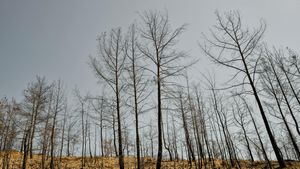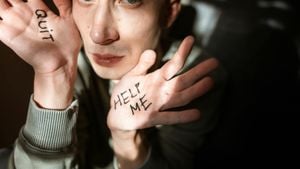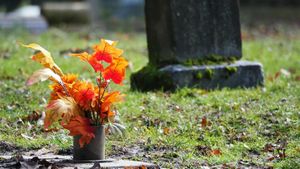NOVI SAD, Serbia -- Serbian students have taken to the streets, leading mass protests against government corruption following the devastating collapse of the train station roof on November 1, which resulted in the deaths of 15 people.
On Sunday, students blocked the Freedom Bridge over the River Danube for over 24 hours, highlighting their commitment to their cause. Alongside them, farmers parked their tractors on the bridge, providing protection from potential threats by supporters of President Aleksandar Vucic and reinforcing the solidarity of the movement.
Initially triggered by the tragic incident, the protests have evolved to represent wider discontent with the government's handling of safety regulations and oversight, particularly concerning infrastructure projects. Student activist Lucija Maslakovic stated, "Well, the only way to end this (protest) is if all our demands are met," underscoring the necessity of accountability in the wake of the collapse.
Since the protests began, thousands of citizens have joined the students every week, reinforcing their calls for thorough investigations and the publication of documents related to the renovation of the train station. With the protests growing, the movement has already forced the resignation of Prime Minister Milos Vucevic, who announced, "My irrevocable decision is to resign from the position of prime minister," during a press conference following mounting public pressure.
Vucevic's resignation came as thousands of protesters continued their demonstrations across major cities, including Belgrade and Novi Sad. Despite the government's high-level shakeups, students like Maksim Jankovic, a 19-year-old biology student at Belgrade University, expressed skepticism. "The prime minister's resignation means nothing to the students. Our demands are clear and we will continue protesting no matter who resigns," he asserted, highlighting the uncompromising nature of their message.
The protests have drawn attention not only because of their size but also due to the alleged backdrop of government corruption and links to Chinese state companies for the renovation projects. Criticism toward the government is particularly intense due to fears of lasting instability and the erosion of public trust.
President Vucic, who has held the presidency for over ten years, responded ambivalently to the unrest, attempting to offer dialogue with university professors but simultaneously accusing the protesters of serving foreign interests. He warned, "We don't need governments imposed from the outside... without elections and without the will of the people,” indicating his perception of the students’ actions as potentially subversive.
Tensions have escalated, with reports surfacing of violence at some protests, including assaults against demonstrators. Most recently, the interior ministry announced the arrest of four individuals implicated in the assault of a female student during these demonstrations.
Adding to the complexity of this situation is the closely monitored state media. Reports from pro-government outlets have downplayed the size and significance of the protests, even going so far as to label gatherings as “disasters” due to purported low turnouts. This narrative contrasts sharply with the reality on the ground, where massive crowds fill city streets.
Jelena Djordjevic, a university professor from Novi Sad, vocalized the appreciation many feel toward the students. "I support them fully. I can't believe how well they are organized, mature and good," she said, embodying the growing recognition of the students' efforts among educated professionals.
With calls for transparency continuing, the protesters are adamant about ensuring all documentation related to the station's renovation is made public and demands for appropriate punishment for those responsible are met. Despite governmental efforts, the students have shown no signs of receding, and the demonstrations are rapidly becoming emblematic of Serbia's broader struggles with corruption and governance.
For now, the future of the protests remains uncertain. Vucic’s government, facing pressure from students and their supporters, must navigate the delicate balance between public dissatisfaction and the desire to maintain its authority. The situation is still developing, with students committed to pushing their agenda, unyielding even against significant political changes.



